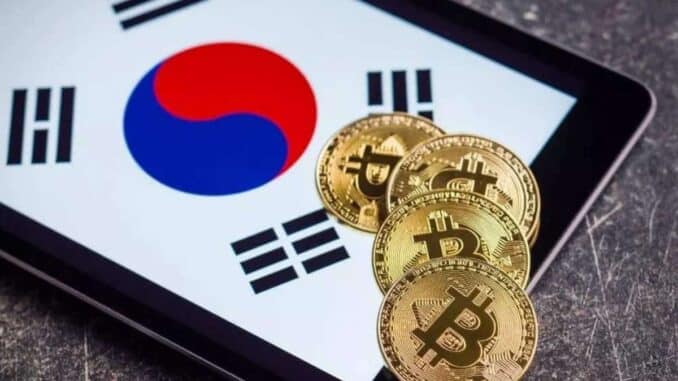 Although the United States has authorized the long-awaited Bitcoin exchange-traded funds (ETFs) after ten years of delay, South Korea continues to forbid BTC ETFs.
Although the United States has authorized the long-awaited Bitcoin exchange-traded funds (ETFs) after ten years of delay, South Korea continues to forbid BTC ETFs.
According to the Financial Services Commission (FSC) of South Korea, “nothing will change” and the introduction of virtual currency exchange-traded funds (ETFs) is “impossible.”
Currently, the nation forbids banks and other financial organizations from purchasing or possessing cryptocurrencies. The FSC raised concerns about the unauthorized transfer of domestic funds overseas as a result of credit card purchases made on international cryptocurrency exchanges.
The Anti-Corruption and Civil Rights Commission of South Korea recently conducted an investigation that revealed significant cryptocurrency trading activity among the nation’s legislators, leading to the implementation of a national ban.
“Impossible” to Launch a Crypto ETF: FSC
An FSC official informed a reporter that the purpose of the ban is to “stabilize” the financial markets. To safeguard investors and stable the financial industry, the government has always upheld the concept that financial institutions cannot invest in virtual assets. There aren’t any adversaries.
Additionally, the official mentioned a few jurisdictions that have previously introduced cryptocurrency futures exchange-traded funds, or spot ETFs, including the US, Hong Kong, and Germany.
It is challenging to consider it a novel incidence. The officer said that it is not possible to start a virtual asset exchange-traded fund (ETF) legally.
Furthermore, the only listed underlying assets for ETFs in the nation’s Article 4 of the Capital Markets Act are financial investment goods, currencies, and general items.
The US Securities and Exchange Commission (SEC) made history on Wednesday by approving the listing and trading of multiple spot Bitcoin ETFs, thereby allowing a large number of new investors to access the cryptocurrency market.
Regarding this, the FSC official from South Korea observed that the US financial system did not implode when the cryptocurrency market crashed because banks and other financial organizations were not allowed to invest in virtual assets (such as those in Korea).
Reluctantly, the SEC responded to the court ruling by allowing virtual asset exchange-traded funds (ETFs) on a restricted basis. The demand foundation of the local stock market may potentially erode if investments in virtual assets are acknowledged.













